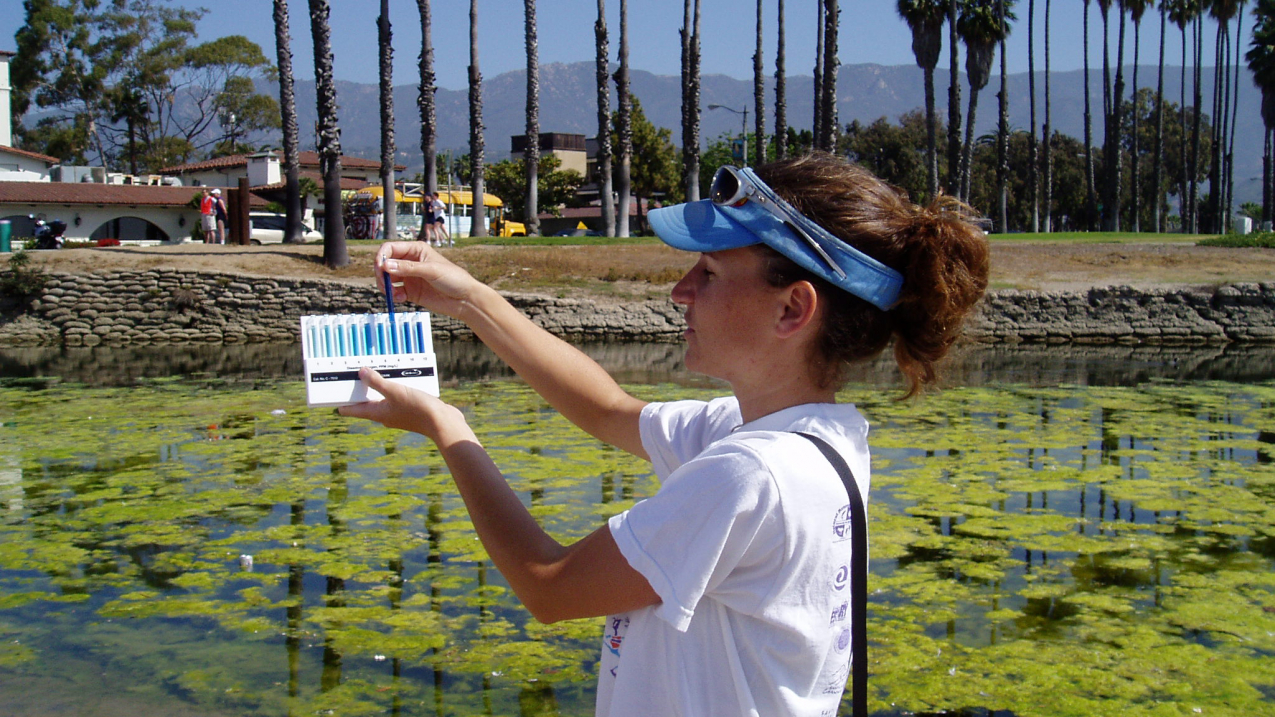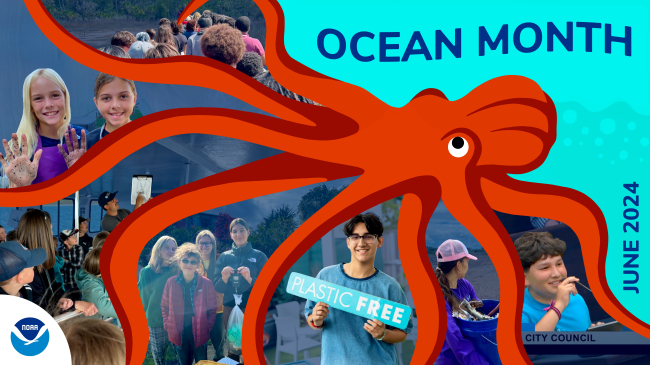Today, the Federal Community of Practice for Crowdsourcing and Citizen Science was announced as a finalist in this year’s Roy and Lila Ash Award for Public Engagement in Government by the Ash Center for Democratic Governance and Innovation at the John F. Kennedy School of Government, Harvard University.

Citizen science volunteers conduct water quality monitoring in the watersheds of our national marine sanctuaries. (Image credit: Claire Fackler/NOAA)
As one of four finalists for the Roy and Lila Ash Award, the Federal Community of Practice for Crowdsourcing and Citizen Science (CCS) will compete for a $100,000 grand prize during presentations to the Innovations in American Government Awards National Selection Committee, chaired by Kathleen Kennedy Townsend, former Lieutenant Governor of Maryland, on May 17 in Cambridge, Massachusetts. The presentations will be live-streamed on the Ash Center website at http://ash.harvard.edu offsite link.
The CCS developed a collection of resources, designed by and for federal practitioners, focusing on two approaches to open innovation. Both approaches — crowdsourcing, in which organizations submit open calls for assistance from large groups of volunteer problem-solvers, and citizen science, in which public participants engage in any part of the scientific process — promote public engagement as a mechanism to address complex problems. These approaches represent new types of collaboration and engage members of the public, many of whom might not otherwise be consulted, in research and solution development, thus allowing researchers to gain valuable data and insights. NOAA is an active, founding member of the CCS and serves on its Steering Committee.
Such open innovation in the federal government often faces challenges of awareness, culture, and institutional understanding. CCS initiatives help the federal government produce these new types of collaboration. CCS meetings and events have connected practitioners and built new capacity to develop broad federal understanding of the value of these approaches, as well as specific resources to support their implementation. CCS delivers these resources to the federal community and public through a centralized, high-profile site at CitizenScience.gov. NOAA crowdsourcing and citizen science projects are represented in the Toolkit and Catalog that serve as core elements of this site.
Tony Saich, director of the Ash Center and Daewoo Professor of International Affairs, remarked that these programs “demonstrate the expanding horizons of how technology can be used to engage citizens and disseminate information more broadly than it ever has before. These programs are not just changing the old town hall method of public discourse, but also showing how the principles and tools of engagement, crowdsourcing, and open information can be used in initiatives working to address diverse societal challenges, such as enfranchisement and informed voting, mental health, criminal justice, and community development.”
The Roy and Lila Ash Award for Public Engagement in Government aims to highlight government programs, policies, and initiatives that encourage public participation in a range of budgetary, regulatory, and policy decisions. This award was also designed to recognize those efforts that successfully employ digital technology and crowdsourcing techniques to broaden public involvement in government decision-making and drive problem-solving.
The Innovations in American Government Awards was created by the Ford Foundation in 1985 in response to widespread pessimism and distrust in government’s effectiveness. Since its inception, over 500 government innovations across all jurisdiction levels have been recognized and have collectively received more than $22 million in grants to support dissemination efforts. Such models of good governance also inform research and academic study around key policy areas both at Harvard Kennedy School and academic institutions worldwide. Past winners have served as the basis of case studies taught in more than 450 Harvard courses and over 2,250 courses worldwide.
For more information, contact:
Daniel Harsha
Associate Director for Communications, Ash Center
617-495-4347
202-482-2893
About the Ash Center for Democratic Governance and Innovation
The Ash Center for Democratic Governance and Innovation advances excellence in governance and strengthens democratic institutions worldwide. Through its research, education, international programs, and government innovations awards, the Center fosters creative and effective government problem solving and serves as a catalyst for addressing many of the most pressing needs of the world’s citizens. For more information, visit www.ash.harvard.edu offsite link.




